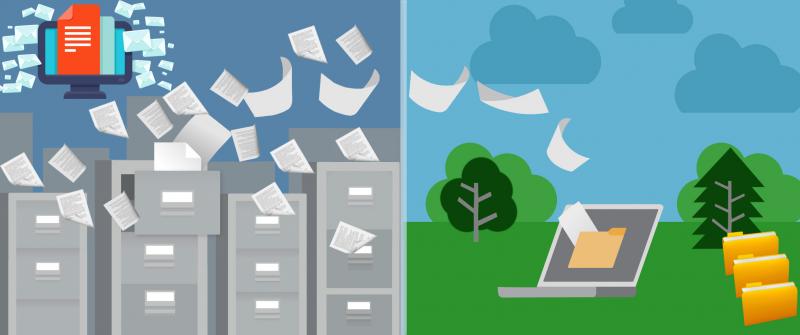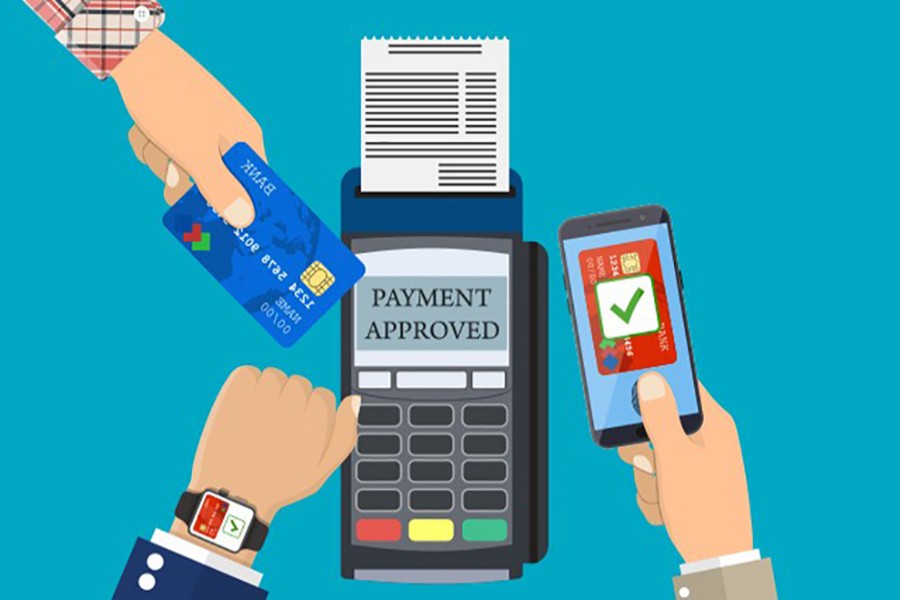For years, terms such as ‘paperless office’, ‘telecommuting’ and ‘cashless society’ have filled column inches as futurists spoke of A world that would soon be reality.
Early predictions of the paperless office were being made in 1975 however improvements in printers and photocopiers saw office paper usage double between 1980 and 2000. Bills and invoices were printed and mailed out, printed receipts issued with every transaction and hard copy instructions included with every major purchase of home appliances.

Telecommuting in its original form was envisaged as a way of reducing travel to conduct business back in the early 1970s. It has morphed into ‘working from home’ (WFH) as the all pervasive internet has connected employees with their place of work. It’s embrace has been slowed not by technology by largely by a corporate culture that has struggled to accept that employees can self-discipline and maintain productivity even when there is nobody watching over them.
The use of cash has been progressively dwindling with the introduction of credit and debit cards, ‘tap and go’ apps on mobile devices and online shopping have played their part in fuelling the transition. In 2019 the Federal Reserve Bank was predicting Australia to be a cashless society by 2022. Other experts were suggesting 2026 might be more realistic milestone given the current rate of decline in the use of cash.
COVID-19 arrived on the global scene, slowly at first as it started to spread through China, before appearing in Europe where the pace of infection grew exponentially. At this time in was little more than a spectator sport to be watched from afar for those of us safely ensconced in our island nation ‘down under’ that remained a long way from the spreading infection.
The infection that resisted efforts to halt its progress eventually found its way into our country. The consequences of its arrival were felt almost immediately as the country entered a period of lock down that forced changes upon the population. Very few aspects of our day-to-day existence were left untouched. Too many to mention here so let’s focus on how embracing the paperless office, telecommuting and the cashless society has been shifted into overdrive since COVID-19 arrived on our shores.
Information workers across the public and private sectors abandoned the daily commute and worked from home, where it was possible to do so. Home schooling became a thing and parliament allowed sitting members to participate in the process of governing the nation remotely. Those cultural blockers that had slowed the adoption of telecommuting were cast aside when a state of emergency was declared to allow enforcement of a shut down that left people with no option but to work from home.
While numerous teething problems were experienced as people grappled with poor internet connections while also coming to terms with new tools like Zoom and Teams, the switch was made and it worked. On the whole, people could be trusted to just get on with doing their job. Concessions were made as we collectively settled into what has become the ‘new normal’. ‘Has everyone joined’, ‘who are we waiting for’ and ‘you’re on mute’ are phrases common to most online meetings and conversations these days.

There are early signs that the WFH model has been embraced by businesses that have mothballed large corporate offices in the Melbourne and Sydney CBDs. Employees are moving out of the larger centres to take advantage of the WFH model while they look for a tree / sea change.
Abandoned printers and photocopiers are gathering dust in empty offices. The move to working with electronic content accessed via shared storage in the cloud has infiltrated so much of our daily routine in such a short time that it is breath-taking. Home schooling was once the domain of children on remote rural properties yet within a matter of weeks it was the norm for all school aged children in the country.
The transition away from cash has been gaining pace over recent years. Internet shopping has been one contributor to this this transition. When concerns regarding the circulating of cash as a potential spreader of COVID-19 were raised, cash, while not outlawed, was given a death sentence that it may accelerate its demise. I watched with interest this morning when out waiting for my daily latté at the local café as a young 6 or 7 year old boy approached the counter, ordered a latté and two baby chinos than tapped a debit card on the card reader for payment. Maybe he represents the generation that only reads about cash in history books.

In many ways, as a family, a local community and a nation, we have moved from what may have been unthinkable at the beginning of 2020 to a place where changes to many aspects of our lives have become a necessity, some have been embraced willingly while others imposed by legislation. Rapid and lasting change is possible given the mix of motivators at play. This needs to be reflected on as we set off on our own ‘change’ journeys.
